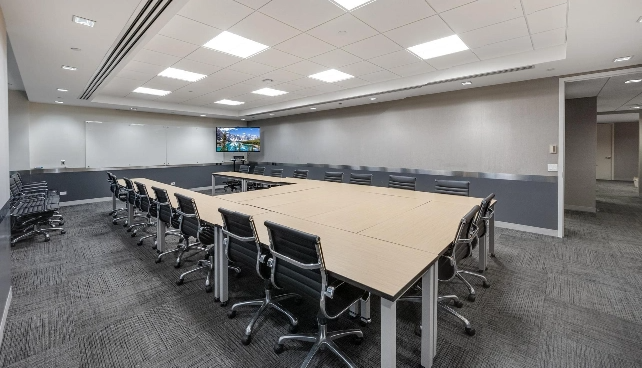Software companies aren’t just in the business of technology; they’re in the business of creating technical solutions that help people overcome challenges in their lives, professional or personal. So logically, the technology firms that understand how to best help other people are the ones who are ultimately going to win the entrepreneurial game. For those of you looking to be the next Facebook or HubSpot, here’s five tips for leveraging your professional network.
Be at the Pulse of Innovation
Technology firms are by nature innovators. They are interested in new things. They are not traditionalists. The ability to interact with other companies is priceless when it comes to keeping the mill fresh with new ideas.
According to Anupam Satyasheel, Chief Enterprise Officer of Occams Advisory, being located in an NYC coworking space was great for a growing firm. The ability to walk down the hall and get off on another floor and meet people was a tremendous benefit to his startup enterprise. It was educational to listen to them talk about what their companies were doing. And sometimes, he adds, “We found opportunities to tell them about what we do and how it would be relevant to their business.”
In addition, Anupam benefited from the flexible approach to business and the realm of office locations that coworking spaces provide. For technology firms whose personnel needs fluctuate with the lifecycle of the product, it’s useful to have the ability to scale up or down, as human capital needs change. The best thing about flexible space is that it is available on-demand and a technology company who has immediate needs won’t have to wait a few weeks or months or go through a lease negotiation.
Get the Best People
Software firms live and die by the strength of their people.
Getting the right lineup isn’t an easy task when your human capital needs can fluctuate so drastically from one month to the next depending on where you are in the lifecycle.
In the increasingly social media-driven world of today, access to personal information is more public than ever. Add to that the convenience of working in an open-plan office center, and recruiting technology talent is easier.
Anupam recalls,”If I think back to 15 or 20 years ago, I had to call a head hunter. It was a long process. These days you can go on LinkedIn or ask somebody in your coworking center and get a qualified referral within a matter of minutes or hours.”
A killer strategy would be to combine your networking in a serviced office space in NYC with online recruiting efforts through Facebook or LinkedIn. Do this on an ongoing basis, even when you’re not in hiring mode. Continually being on the prowl for good talent, even when you’re not in the market for anyone, will provide ready access when you’re in a pinch.
Get feedback
What makes software bad or good is the user experience. If people don’t find that the software solves their problems then it will be of no utility to them. However, software that is intuitive, easy to navigate, and contains relevant features will be software that users gobble up.
There’s no better way to gauge the user experience than getting direct feedback from a qualified peer group.
Sameer Somal of Blue Ocean Global Technology is a proponent of being surrounded by like-minded people who are growing and investing in their businesses. “In the knowledge worker economy, that nourishes your ability to make better decisions. Instead of climbing the wrong ladder you can ask your peers.”
Knowing how your product will be received by a group of potential users is at the core of whether you are going to be successful or not and a huge growth opportunity.
Give
Software companies are built upon relationships, and relationships are ultimately based upon what you are willing to give to other people.
According to Sameer, “Like Einstein said, never strive for success; strive to be a person of value. People are smart and they remember when you’ve done more for them than they have done for you.”
In any coworking situation, as yourself if you are listening to what other people are saying, and then translating that into an opportunity to give.
The best networkers are givers. Reciprocity can be very strong for people who are thought of as kind and nurturing. Always listen with an ear towards how you can help someone as you will foster strong ties with your peers.
Use the Right Jargon
If you’re at a standstill in your networking, the words you’re using may be the culprit.
For example, the question, “So, what do you do?” seems like an inevitable one in the world of business networking. And it’s ugly. According to Sameer, at the core of the question is a masked demand to explain your value.
Awkward, huh?
Instead, try questions such as “tell me about the role you have at your firm” or “what are you involved with?”
In the same spirit, coming to an event armed with intriguing stories and useful information is a great way to prepare for the awkward silence that inevitably happens at some point when meeting someone new. Study for your networking events beforehand. The time invested will pay dividends in helping to make an uncertain process go smoother.
For example, let’s say that you are going to a networking event that focuses on sustainable investing. Read an article or two on the subject, and come up with some insightful questions that potentially could relate back to your software, such as:
- Did you realize that there is over 8 trillion dollars invested in sustainable strategies? I wonder how the accounting software for those investments is structured.
- So what did you think of the recent Investment News series on ESG investments?
- What do you think the next technology innovation in this space will be?
- Tell me about your investment fund and what types of sustainable investments options you provide. (Research the individual participants in advance for this one)
Software entrepreneurs with any questions on how to use a serviced office in NYC to improve their networking can contact info@corporatesuites.com or visit our Contact page.






